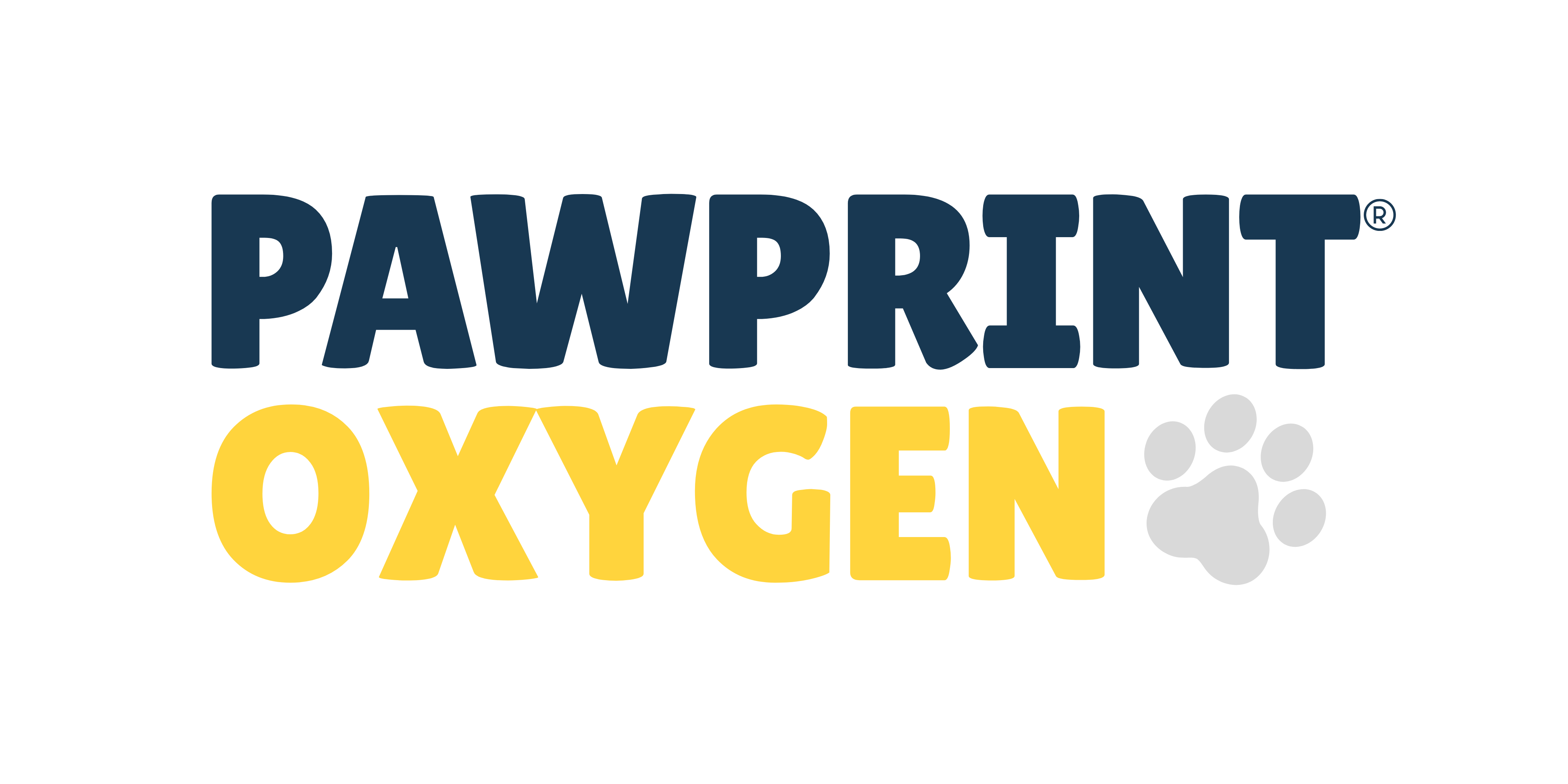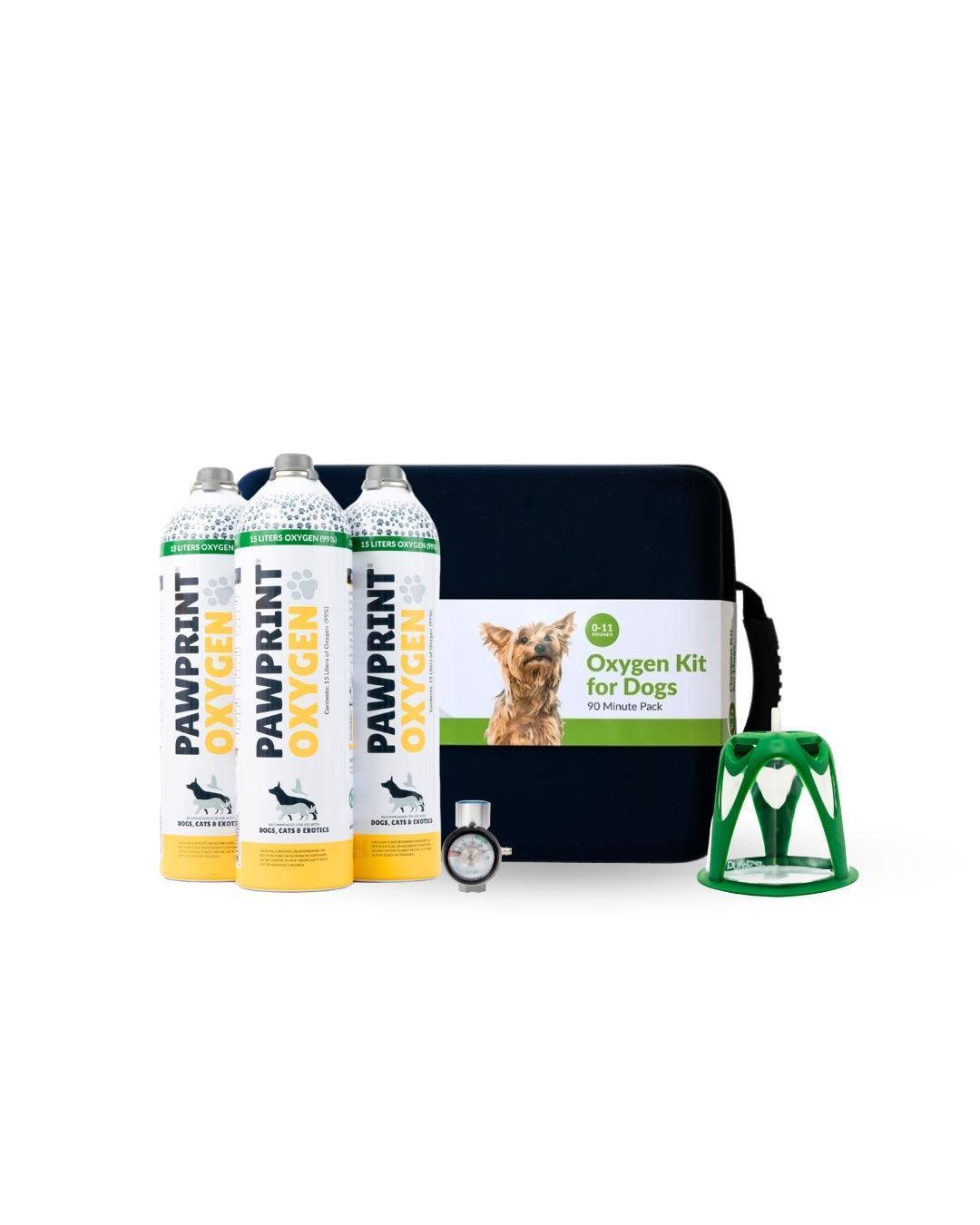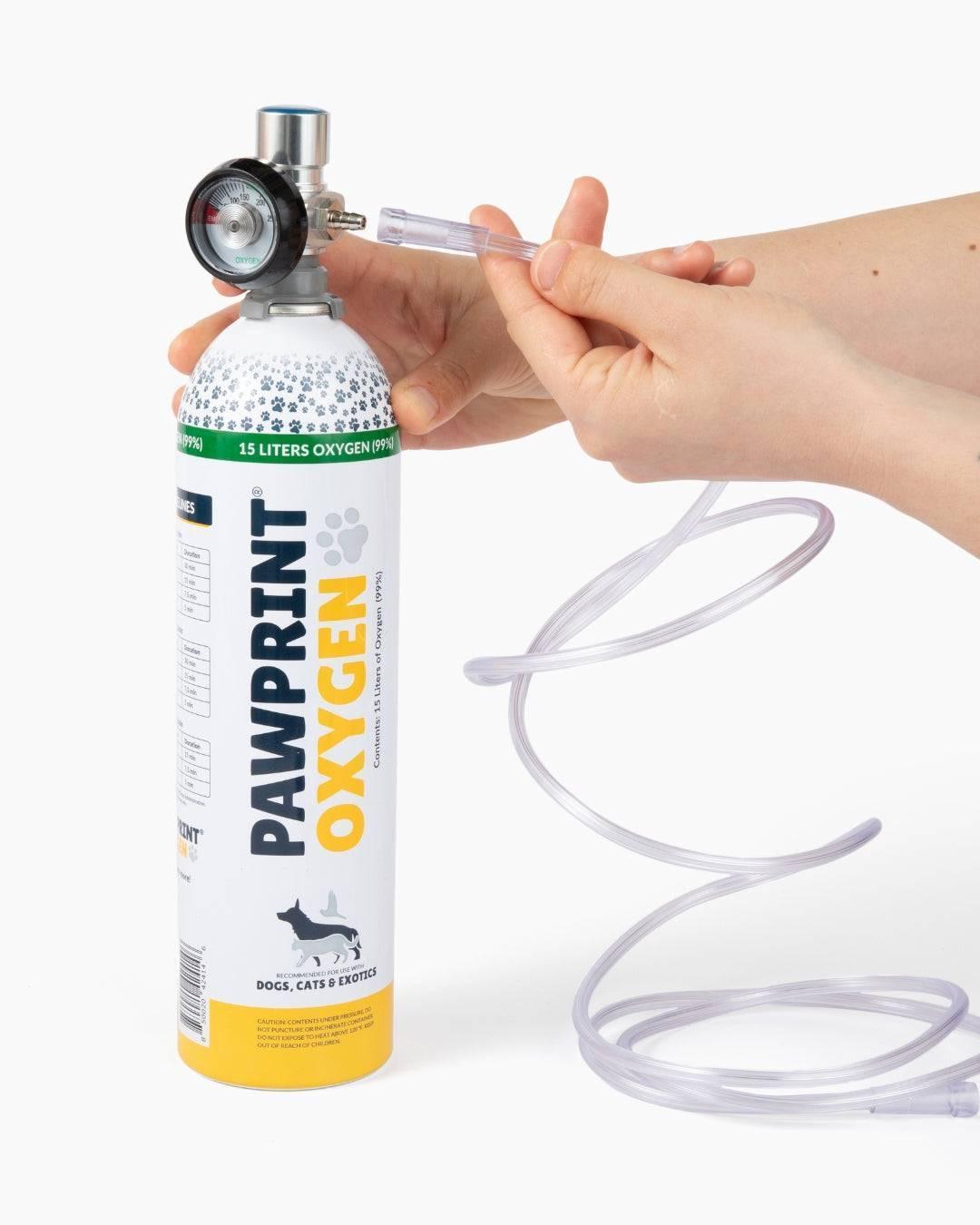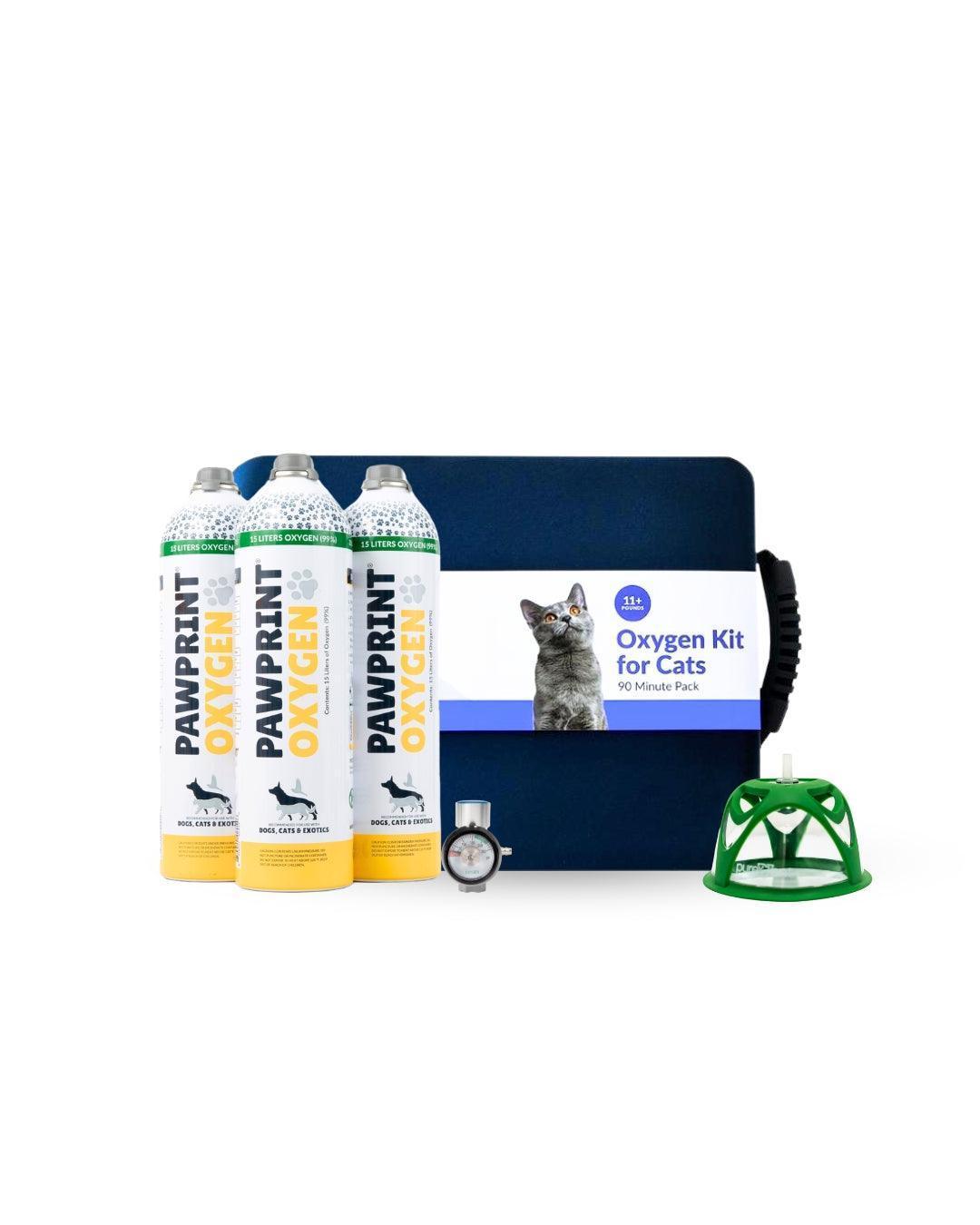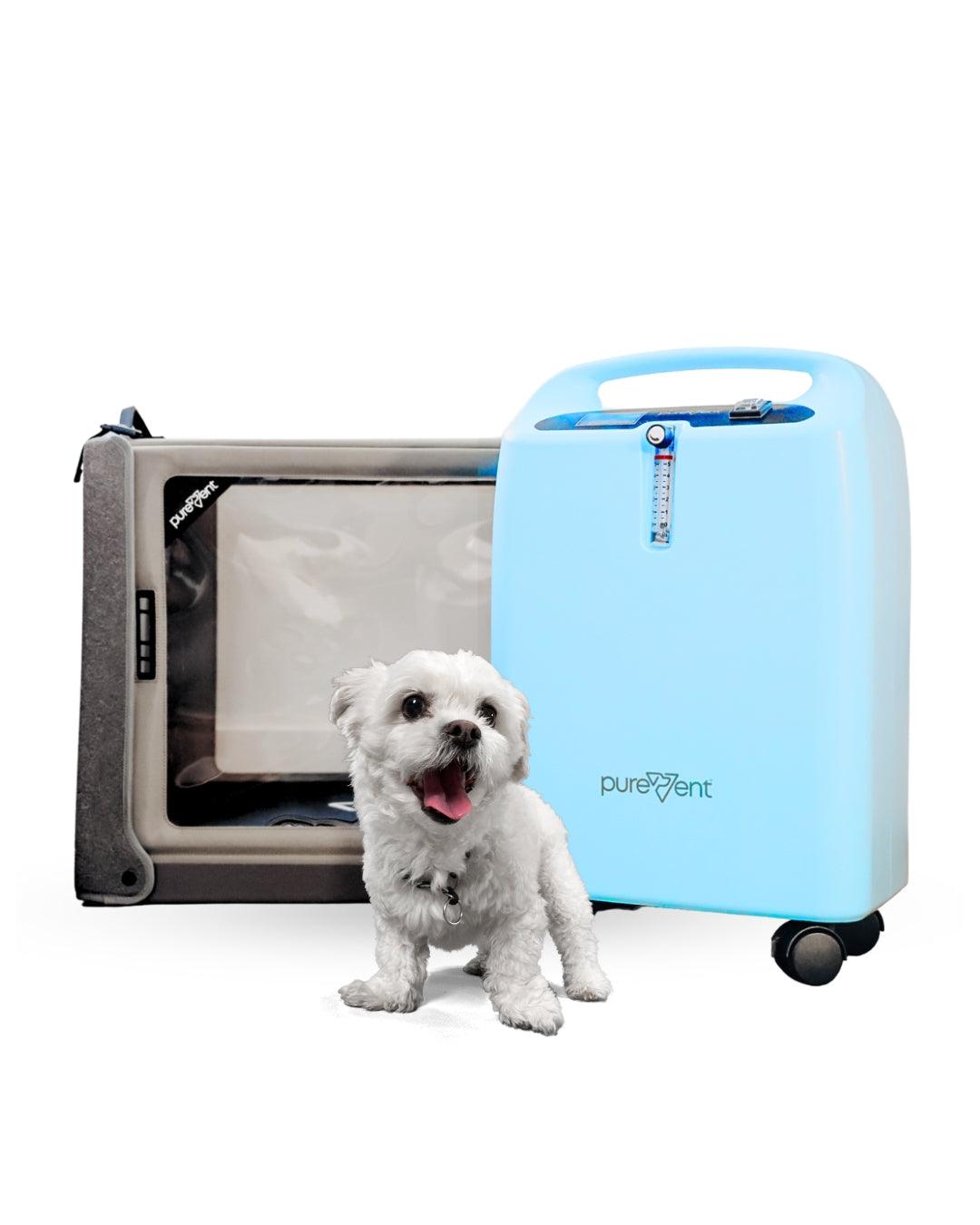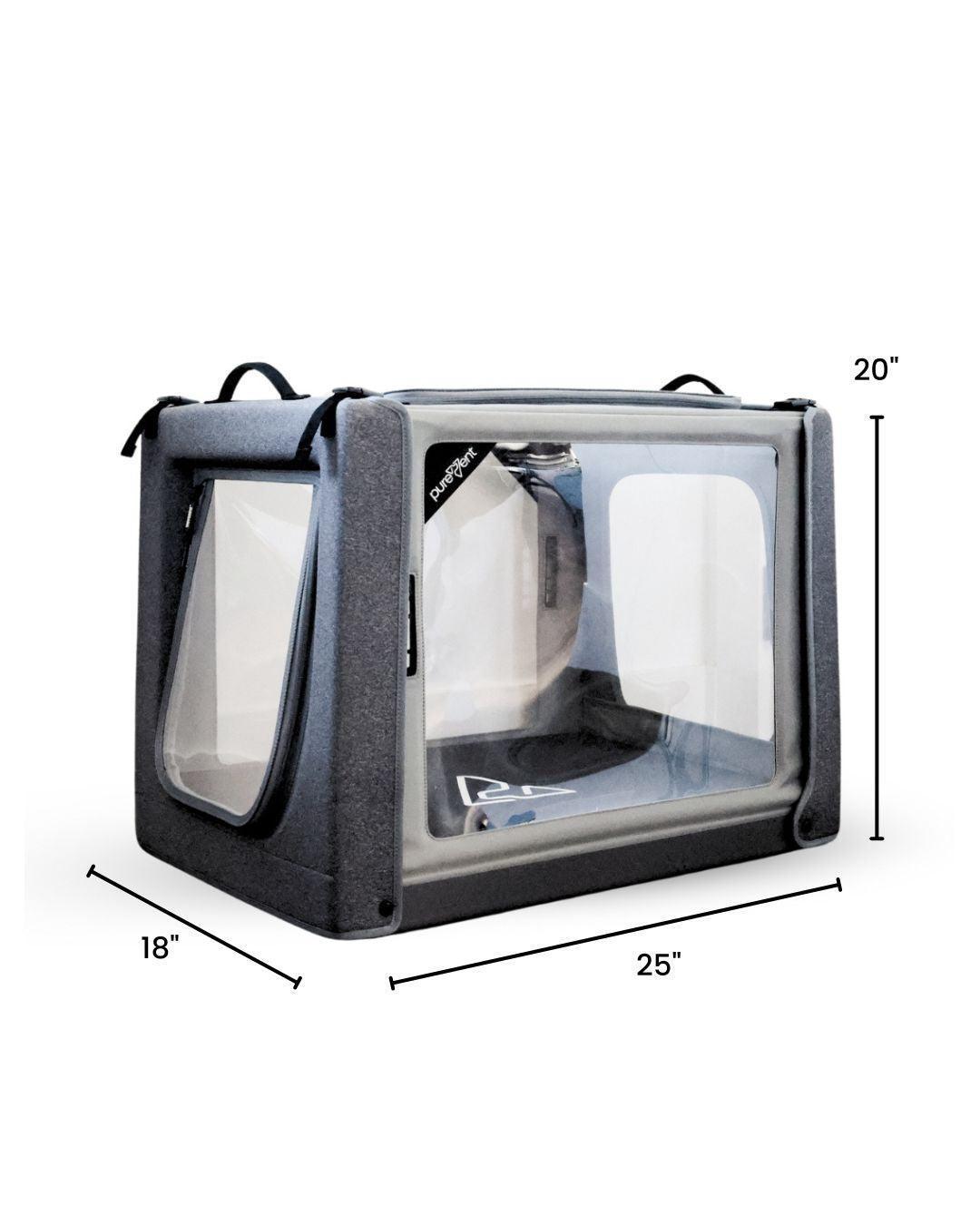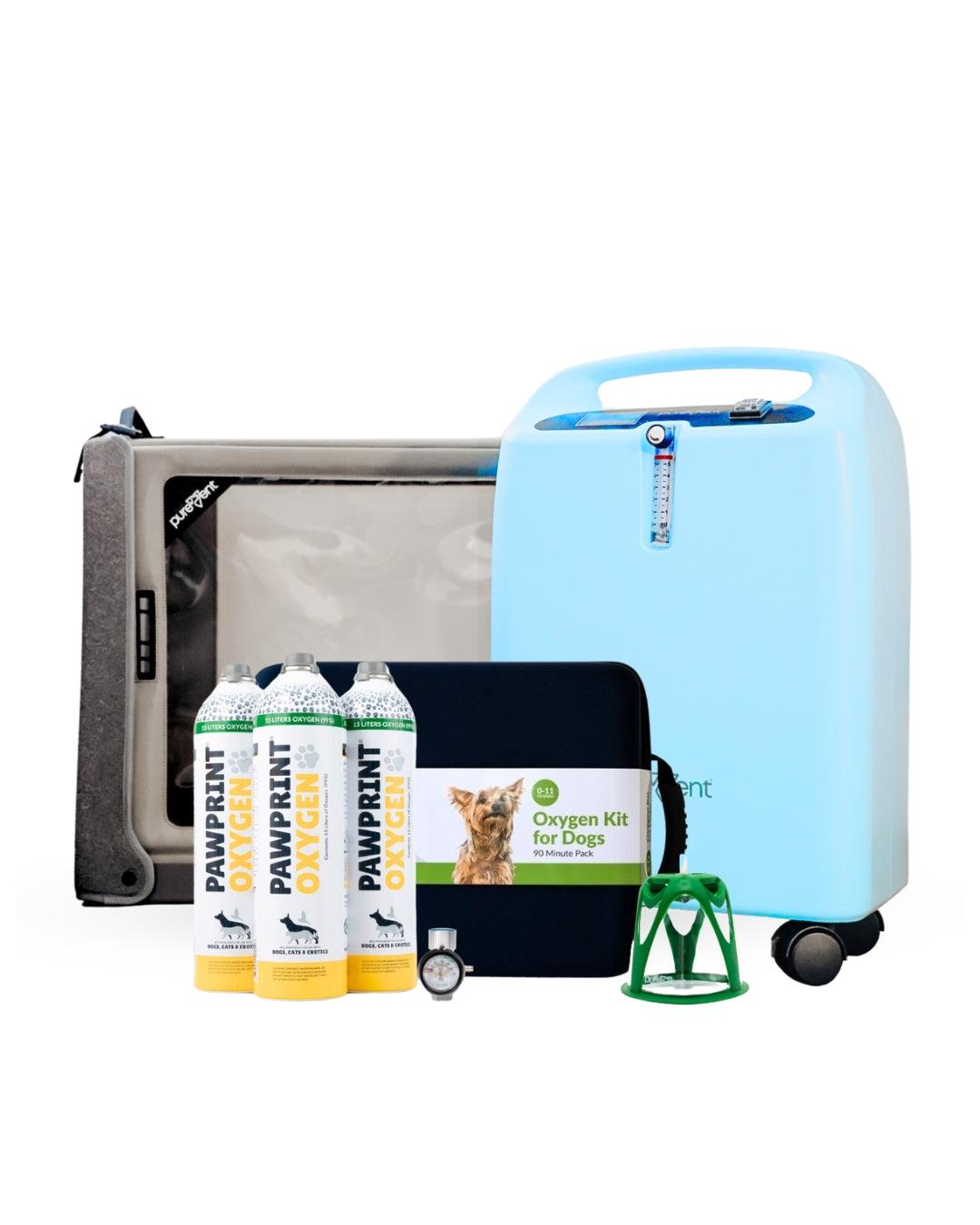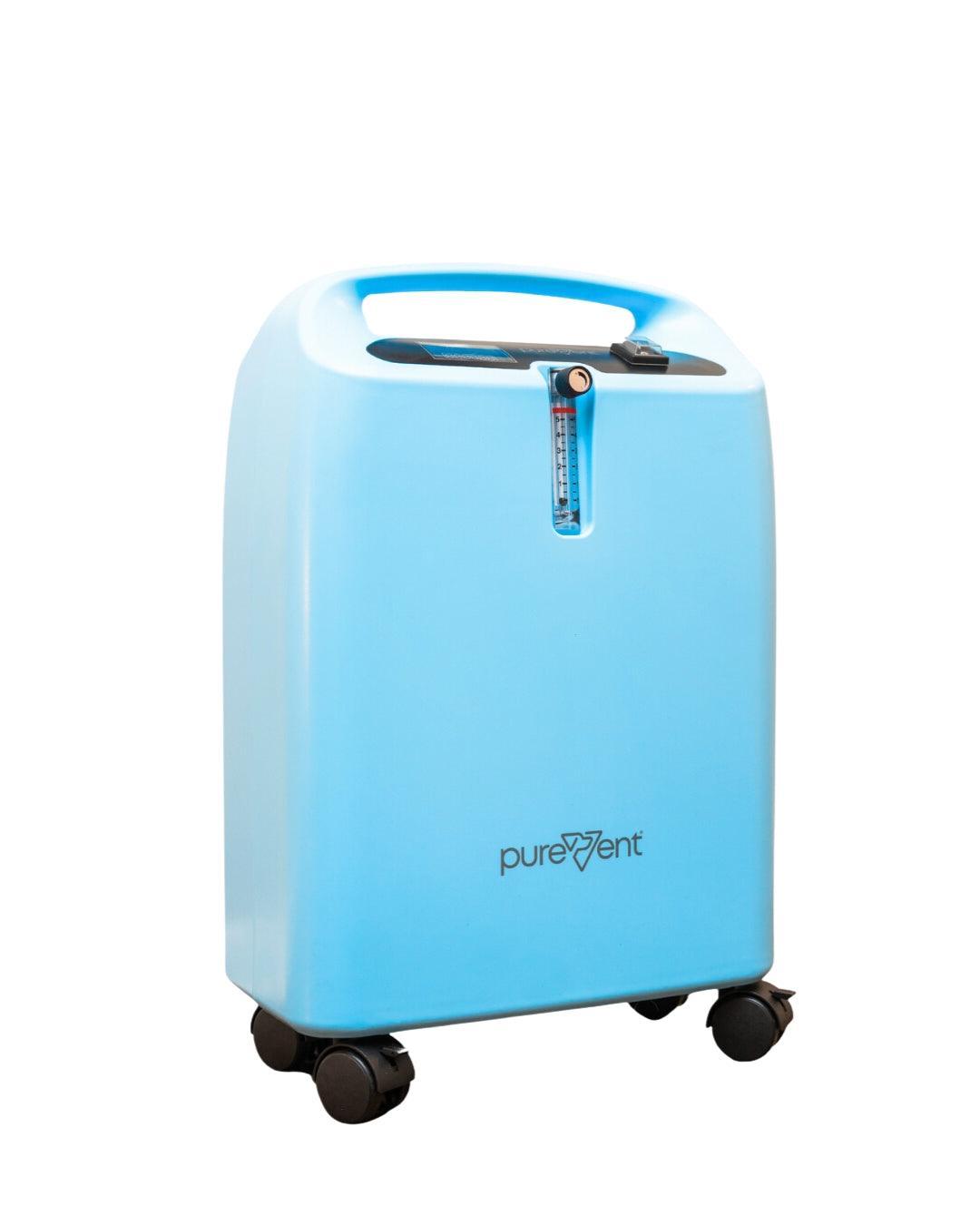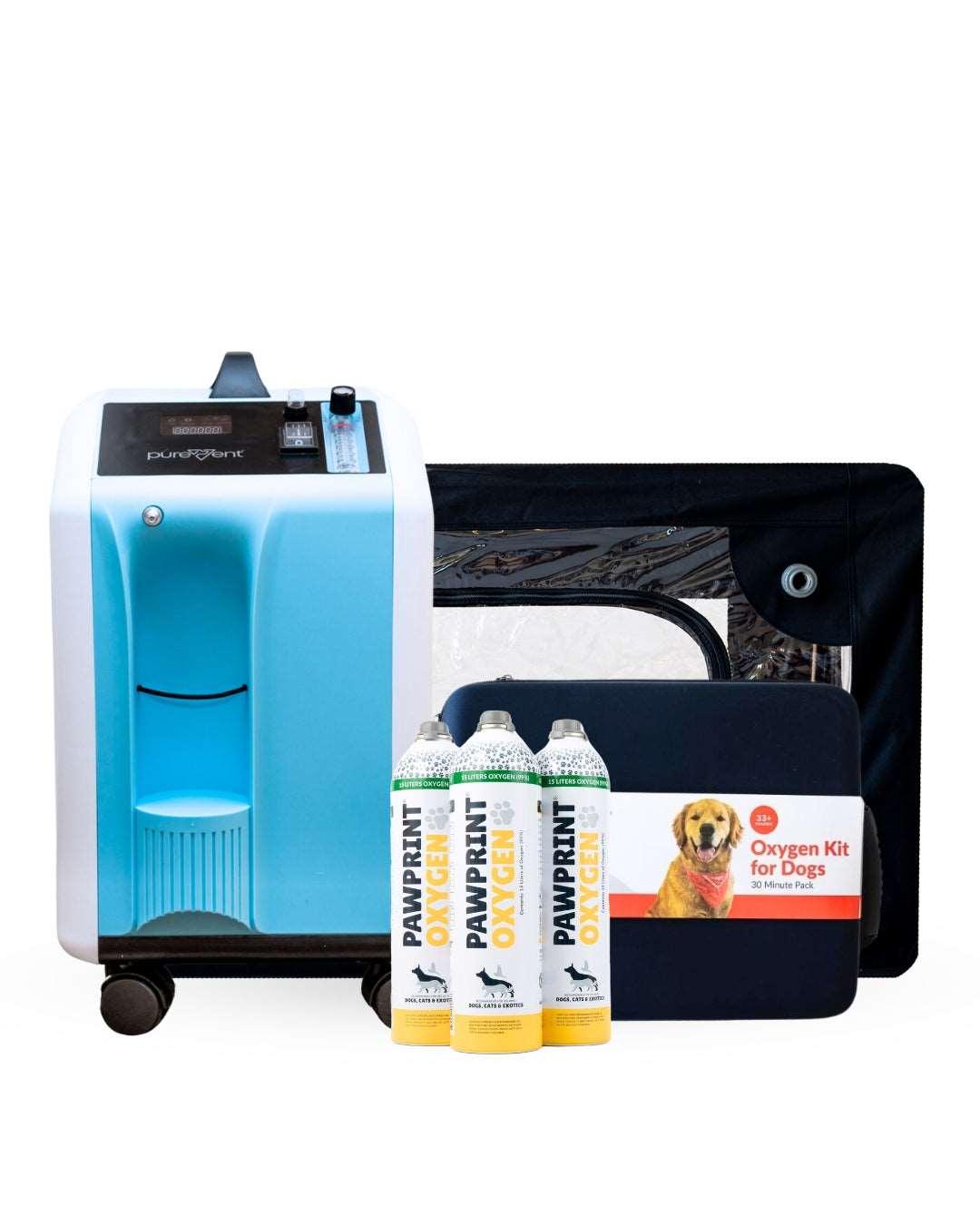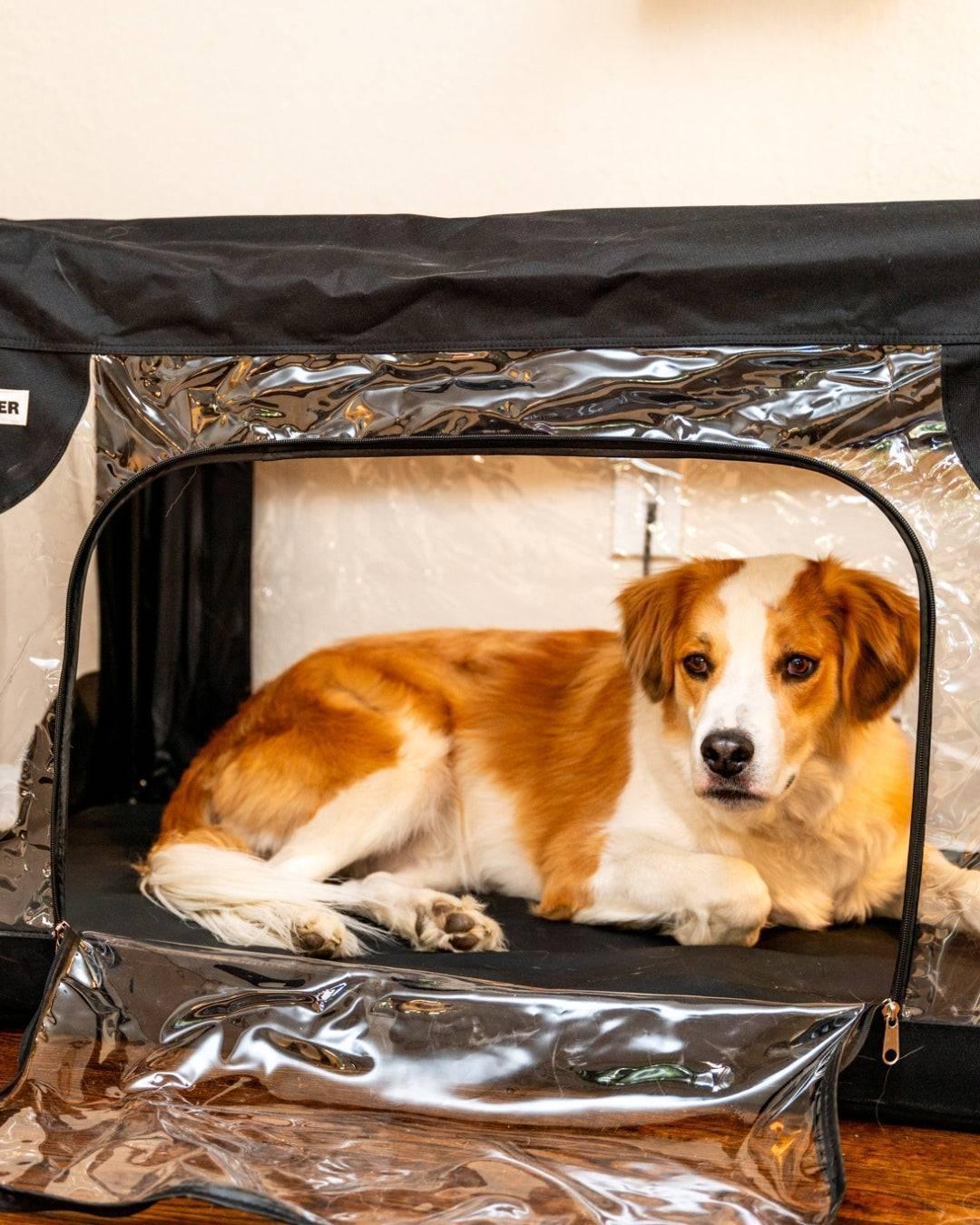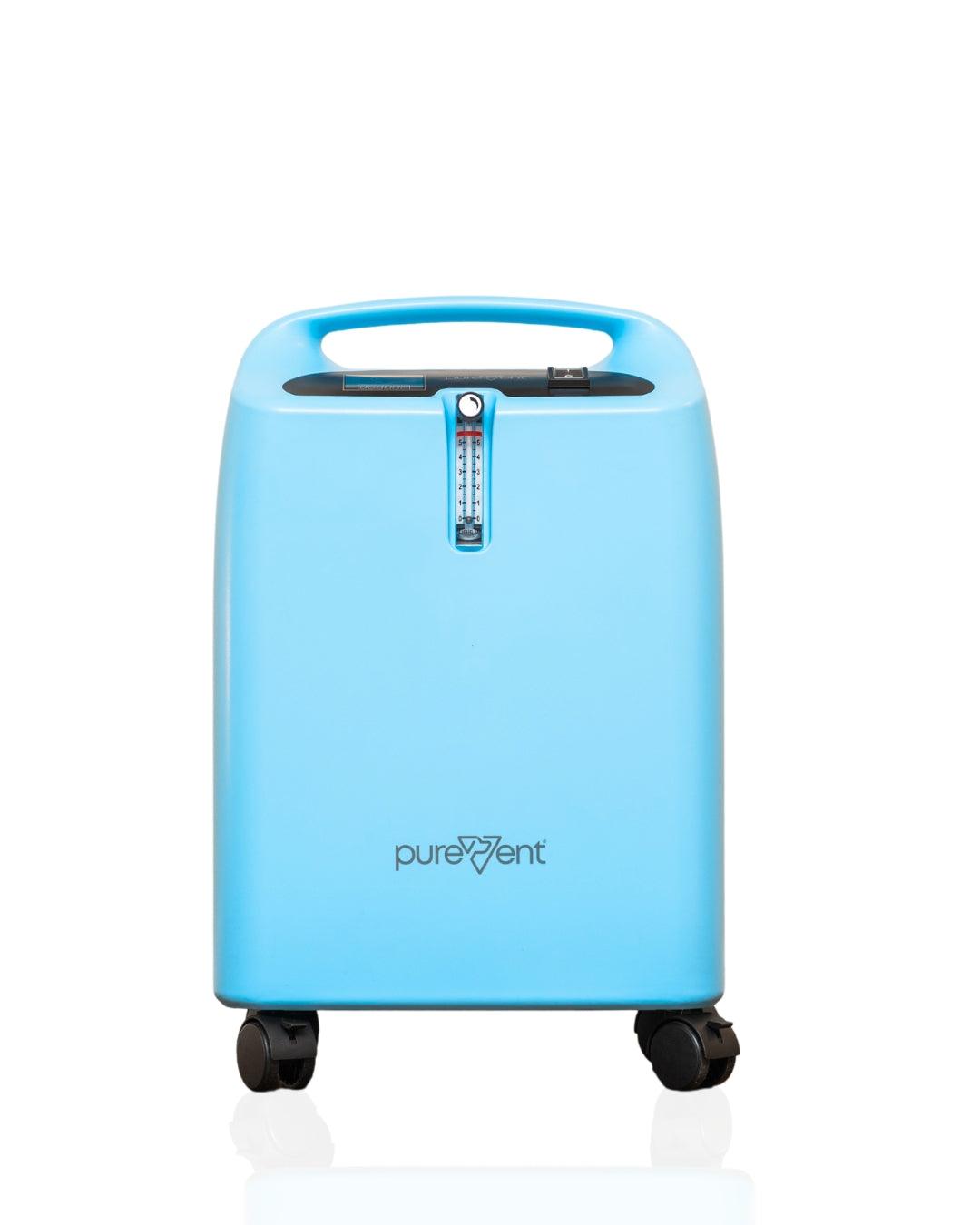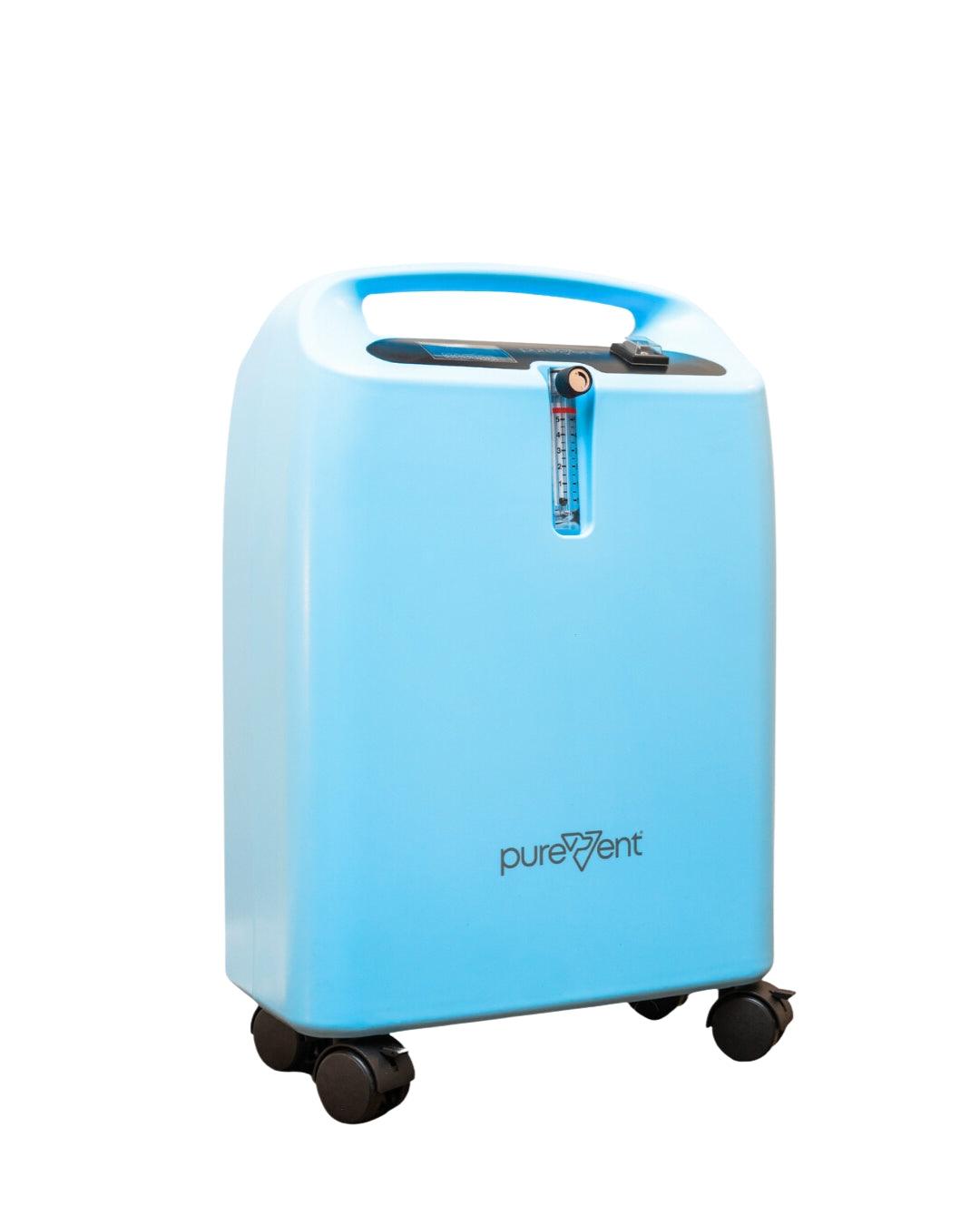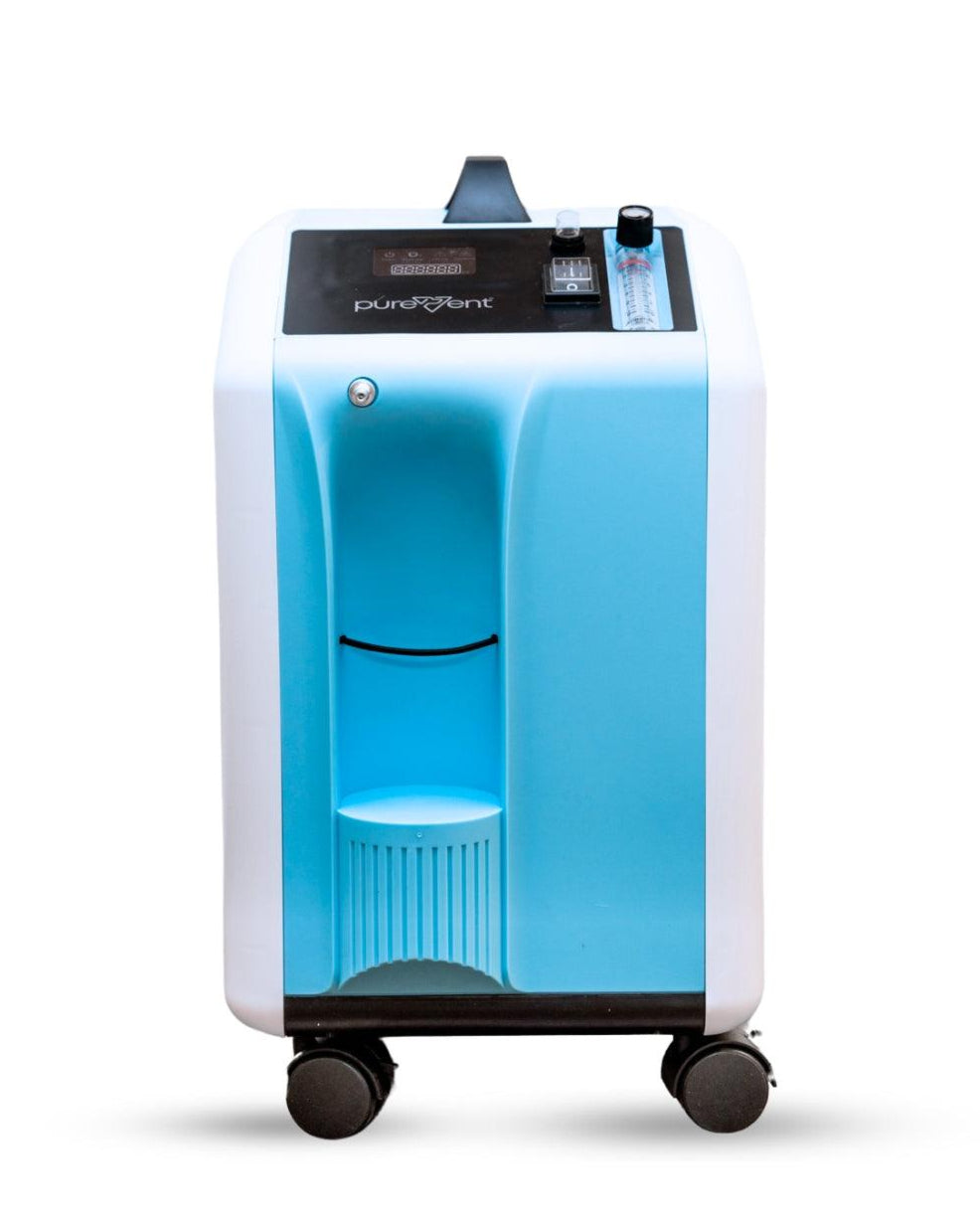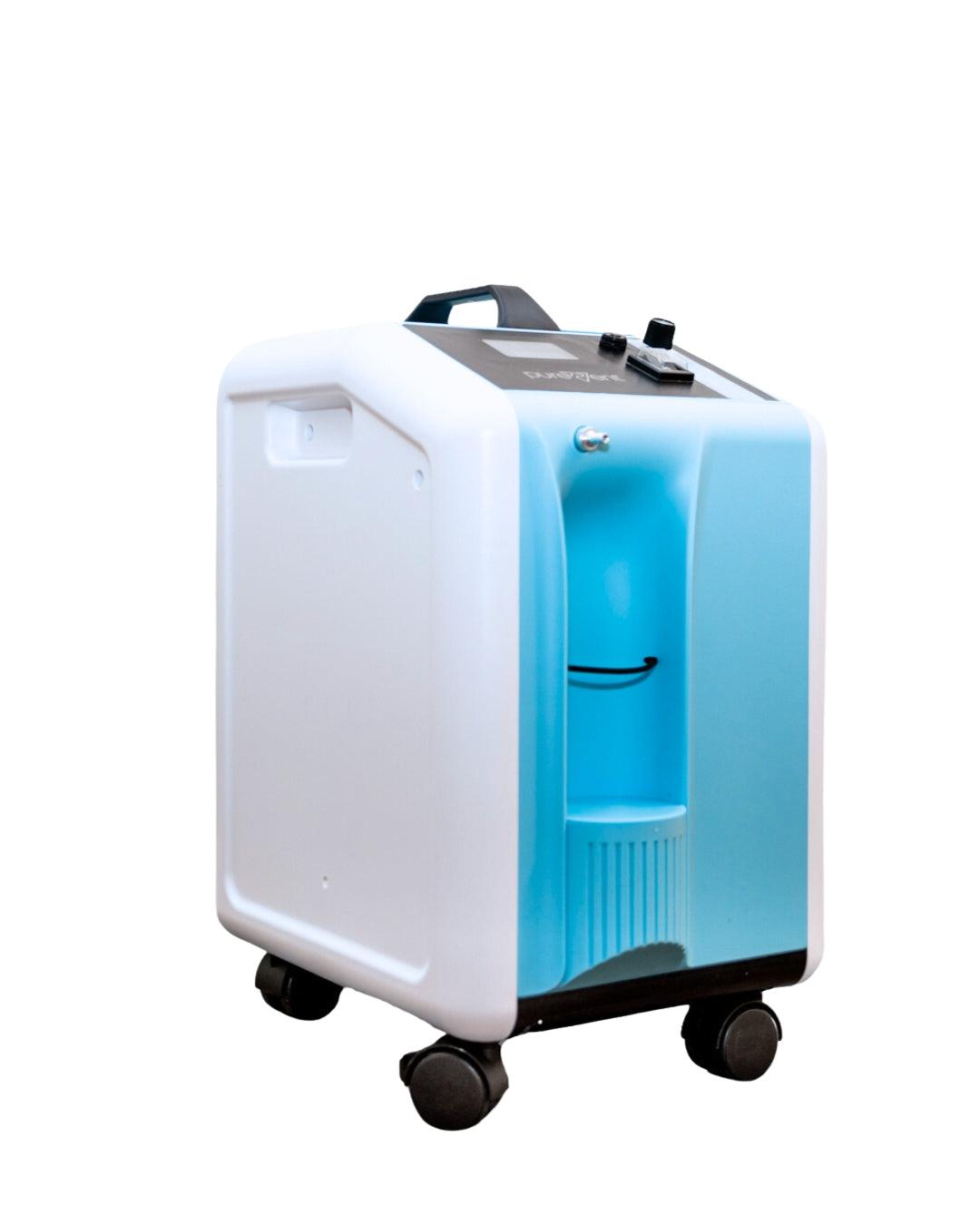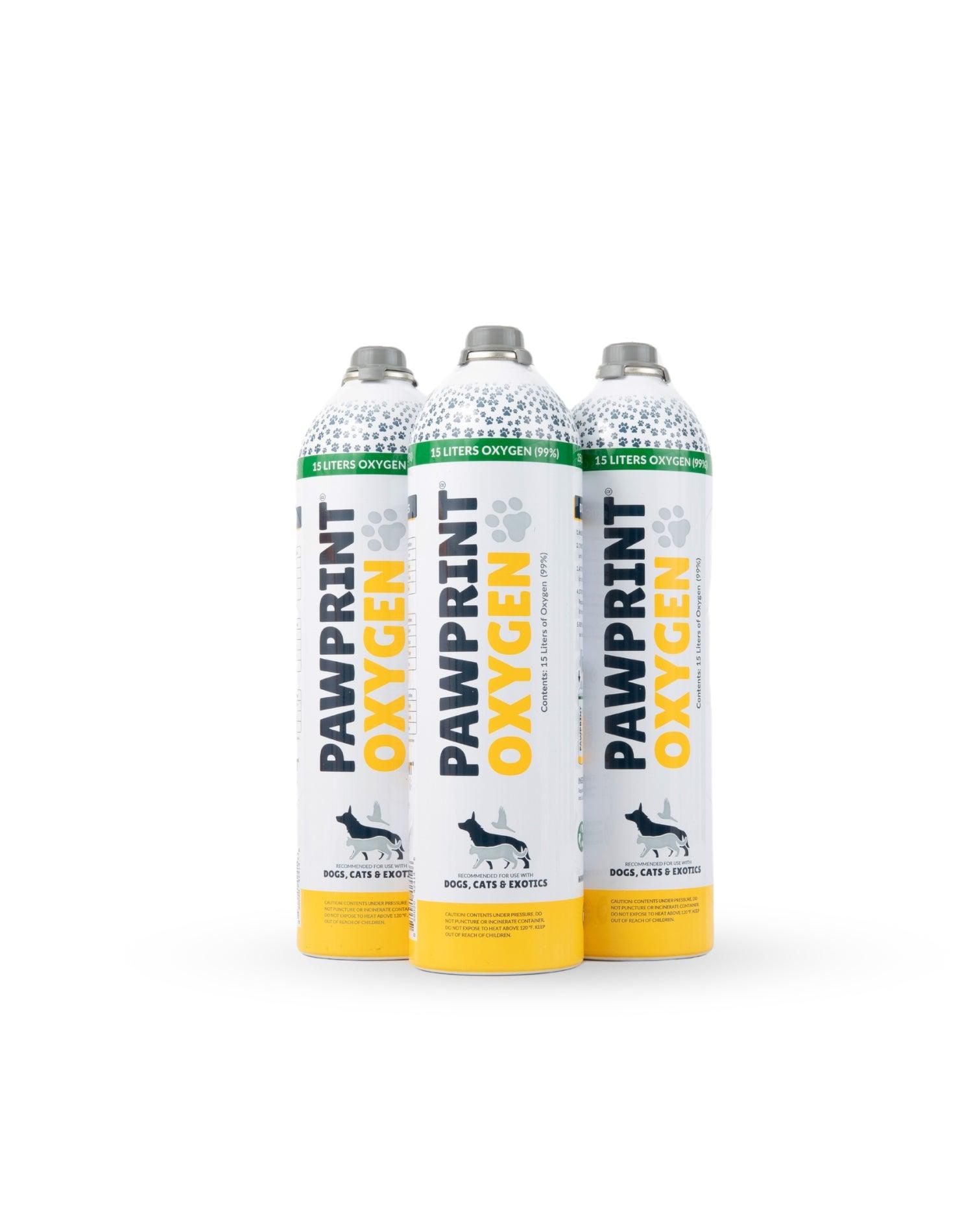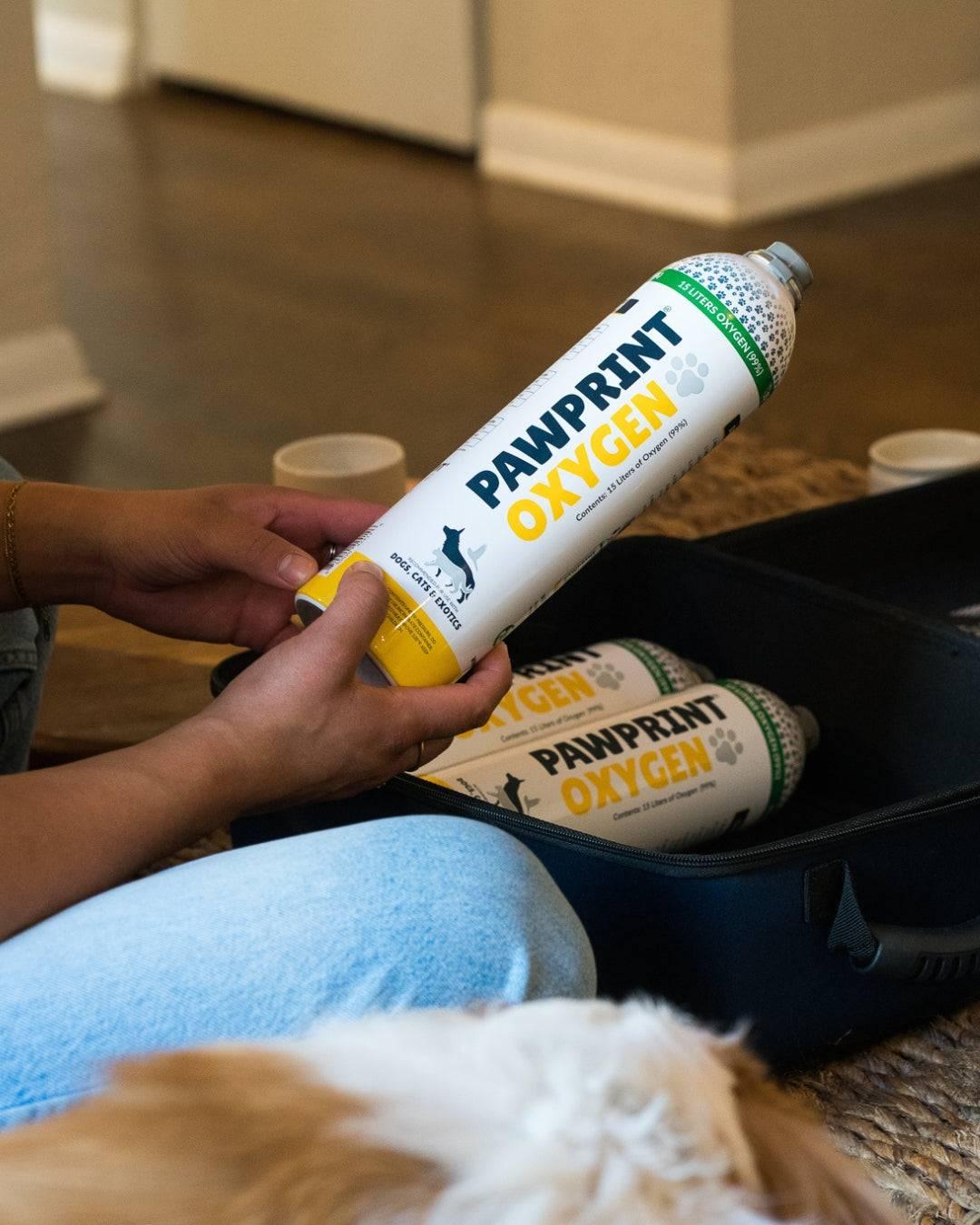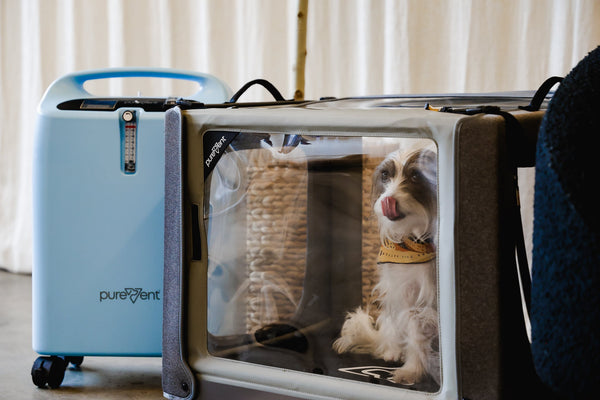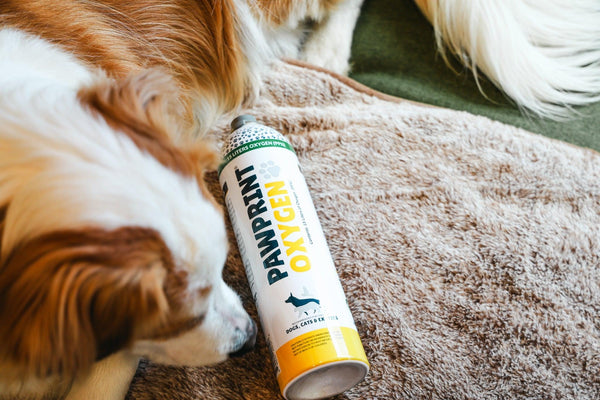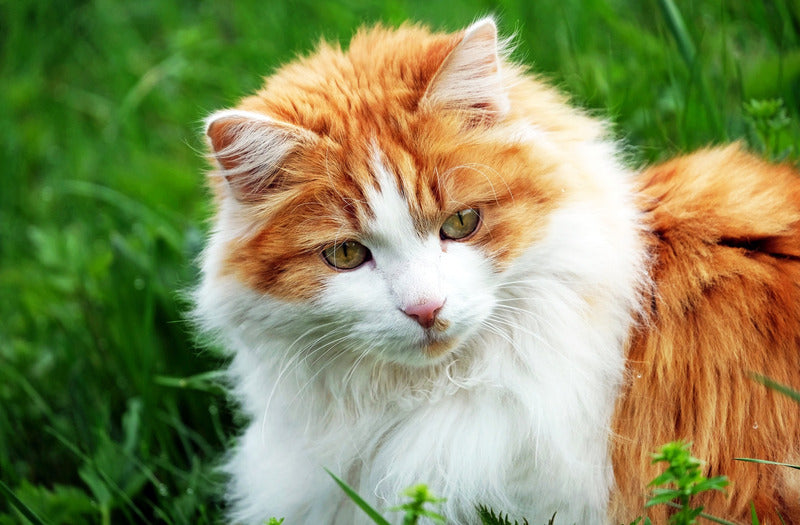Oxygen concentrators benefit dogs by delivering a consistent and high‑concentration supply of oxygen, without the need for refills, thereby improving breathing, energy levels, alertness, and immune function while also being cost‑effective and safer than traditional, heavy oxygen tanks. Proper veterinary guidance and correct usage further ensure that oxygen concentrators are a safe and practical home solution for managing pets with respiratory or cardiac conditions.
Table of Contents
Managing conditions like collapsed trachea, heart disease, or chronic bronchitis in dogs can be challenging, and oxygen therapy often plays a key role in support. An oxygen concentrator provides a steady, controlled supply of oxygen, helping improve your dog’s comfort and quality of life. This article highlights the benefits of concentrators, including affordability, ease of use, safety, and versatility, so you can make informed decisions about your pet’s care.
What Is a Pet Oxygen Concentrator?
An oxygen concentrator is a medical device that delivers a steady flow of concentrated oxygen to pets with respiratory issues by filtering nitrogen and other gases out of the air. These units typically come in 5-liter or 10-liter models, with the right choice depending on your dog’s size, weight, and medical needs. Your veterinarian can recommend the most appropriate unit and oxygen settings to ensure your dog gets safe and effective support.
Key Components and Functions of an Oxygen Concentrator:
- Compressor: Draws in the ambient air and compresses it down to pure oxygen gas.
- Internal Filters: Remove dust, allergens, and other impurities from the air.
- Oxygen Separater: Utilizes a molecular sieve to separate oxygen from nitrogen and other gases.
- Flow Meter: Regulates the flow of oxygen delivered to your dog, allowing precise control based on the pet's needs.
- Delivery System: Includes tubing, masks, or oxygen chambers that deliver the oxygen from the concentrator to your dog.
Does Pawprint Oxygen supply medical-grade concentrators?
Yes, Pawprint Oxygen sells medical-grade, continuous flow oxygen concentrators that support a safe environment for your pet during oxygen therapy. We have two models:
- PureVent 5L Oxygen Concentrator: This model has a maximum flow rate of 5 liters per minute, which is required for the standard sized oxygen chamber.
- PureVent 10L Oxygen Concentrator: This model has a maximum flow rate of 10 liters per minute, which is required for the large oxygen chamber.
Do I need to refill the oxygen concentrator with more oxygen?
No, you do not need to refill an oxygen concentrator. It constantly generates oxygen by pulling in the room air and concentrating the oxygen down to 93-96% oxygen gas, so you never need to worry about running out of oxygen.
What maintenance is required for the oxygen concentrator?
Oxygen concentrators are simple to use and need very little upkeep, usually just wiping down dust and rinsing the pre-mesh filter with warm soapy water. Some units also have a box filter that only requires replacement after about 5,000 hours or a year of continuous use, which is handled for you if renting.

How Does an Oxygen Concentrator Help Dogs?
Oxygen concentrators help dogs breathe easier by delivering higher levels of oxygen, which allows their cells to function more effectively. This can improve energy, alertness, exercise tolerance, and even strengthen the immune system, leading to better overall health. By supporting your dog’s well-being, an oxygen concentrator can reduce vet visits and keep your best friend active and by your side longer.
Additional Benefits of Using an Oxygen Concentrator for Your Dog:
Improved oxygenation: Delivers higher oxygen concentrations for pets with respiratory challenges.
Consistent supply: Provides continuous oxygen without the need for expensive and frequent tank refills.
Convenience: Enables safe, stress-free oxygen therapy at home.
Cost-effective: Lowers long-term expenses by eliminating refills and replacements.
Safety: Avoids risks tied to storing and handling highly-pressurized oxygen tanks.
Are There Risks to Using an Oxygen Concentrator for Your Dog?
Oxygen concentrators are generally safe for dogs needing long-term oxygen therapy, such as those with collapsing trachea or pulmonary hypertension, when used correctly. Always consult your veterinarian before starting treatment and regularly monitor both your pet and the device. Since concentrators are often paired with oxygen chambers, the main risk comes from improper chamber use—there must be proper ventilation to allow carbon dioxide, heat, and humidity to escape. Stay close by during treatments so you can observe your dog and ensure their safety.
Common Uses for an Oxygen Concentrator:
Oxygen concentrators are commonly used for dogs with conditions such as:
- Collapsed Trachea: Helps ease breathing difficulties by providing concentrated oxygen.
- Chronic Obstructive Pulmonary Disease (COPD): Improves overall oxygen levels and reduces respiratory effort.
- Congestive Heart Failure (CHF): Alleviates symptoms by ensuring adequate oxygenation of the blood.
- Pneumonia and Other Respiratory Infections: Supports recovery by ensuring the dog receives sufficient oxygen.
An oxygen concentrator for dogs is a crucial tool for managing various respiratory conditions, enhancing the pet’s comfort and quality of life by ensuring they receive a steady and reliable supply of oxygen.

Where Can You Find an Oxygen Concentrator for Your Dog?
Before choosing an oxygen concentrator, it’s best to consult your veterinarian to ensure you select the right option for your dog’s needs. Pets require a continuous flow of oxygen (not pulse dose units), and depending on their size, you may be able to use a smaller unit or work with a pet-specific supplier like Pawprint Oxygen. Dog owners can either purchase a concentrator outright or rent one for as long as it’s needed. To learn more about rental and purchase options, visit Pawprint Oxygen’s shop page.
